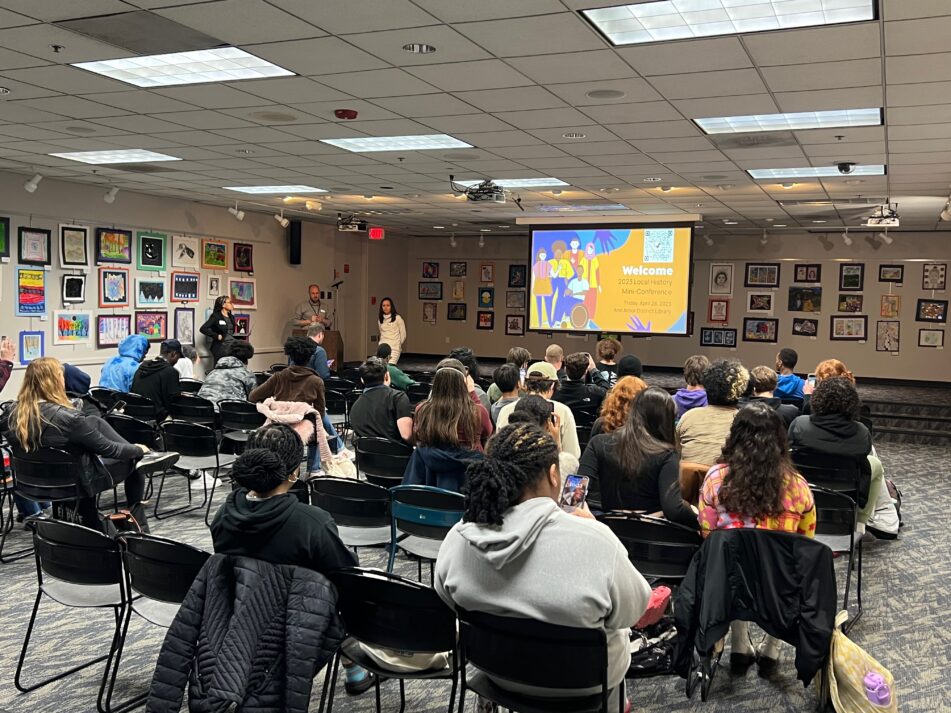High school students from across Ann Arbor came together last week for the first AAPS Local History Mini-Conference at the downtown Ann Arbor District Library. The students taking the History of Racism and Resistance Course are working on local projects around housing and schooling and the impact of race on these issues. The mini-conference gave the students a chance to learn from a historian, author, and University of Michigan professor as well as do research using original source materials.
University of Michigan Associate Professor of History and Women’s and Gender Studies Dr. Lakisha Simmons served as the keynote speaker for the event. Simmons talked with the students about her experience researching her book Crescent City Girls: The Lives of Young Black Women in Segregated New Orleans and other projects.
Simmons says a good historian is disciplined, stubborn, creative, and empathetic. “Being a historian and doing historical work is about being imaginative and curious and that there is no one right answer, and so going out and trying to find and think about what kinds of source materials illuminate the past and then letting their curiosity sort of drive them forward” she says. “I think that young people can actually be really great historians in a way because they’re thinking outside of the box and they don’t already assume to know the answers, like some of us do and so they see things with fresh eyes.”
The tips Simmons gave the students about studying source materials like journals, newspapers from the time being studied, and talking with people that lived through the event were soon put to work, as students divided up into teams to review documents in the AADL collection, visit the University of Michigan’s Bentley Historical Library, and listen to stories from Scott McFadden about growing up in Ann Arbor’s Old Fourth Ward and review artifacts from his personal collection about his family and Ann Arbor’s historical African-American community.
Pioneer senior Lindsay Robert was inspired by what she heard from Dr. Simmons. “Today I’m looking forward to figuring out the process of how this all works, like when we listened to the keynote speaker talking, she was talking about her process, like reading this and reading this, I kind of, that really interests me,” Robert says. “She talks about how she went to New York and different things and like how to even read an archive, or how to read things like that I think is really interesting. Not everything is online, you have to go to the actual archive itself and find things, I’m kind of excited to do that today.”
Through the History of Racism and Resistance class students at Community High School are continuing their work on the 100th anniversary of Jones School and the decision to close the school in 1965. Huron students are learning more about the legacy of racial housing covenants in Ann Arbor and how the community responded to that. Pioneer students are studying Ann Arbor’s history of housing segregation, desegregation and gentrification. Pathways is looking into the history of who AAPS buildings are named after and what values they represent and Skyline is focused on the history of our school boundaries and how those decisions were made.
AAPS Social Studies Department Chair for grades 6 – 12 Jared Auman says this first time event is exciting and it’s amazing for so many from across the community to come together to help the students. “The idea we can have a historian visit and to explain the process and mentality I think is ground breaking for our social studies department, giving opportunities for our students,” Aumen says. “To have someone you know who has expertise in black girlhood and black families and can really then help deepen our own lens into racism and resistance, you know was another sort of opportunity that I don’t think we’ve ever had.”


Be the first to comment